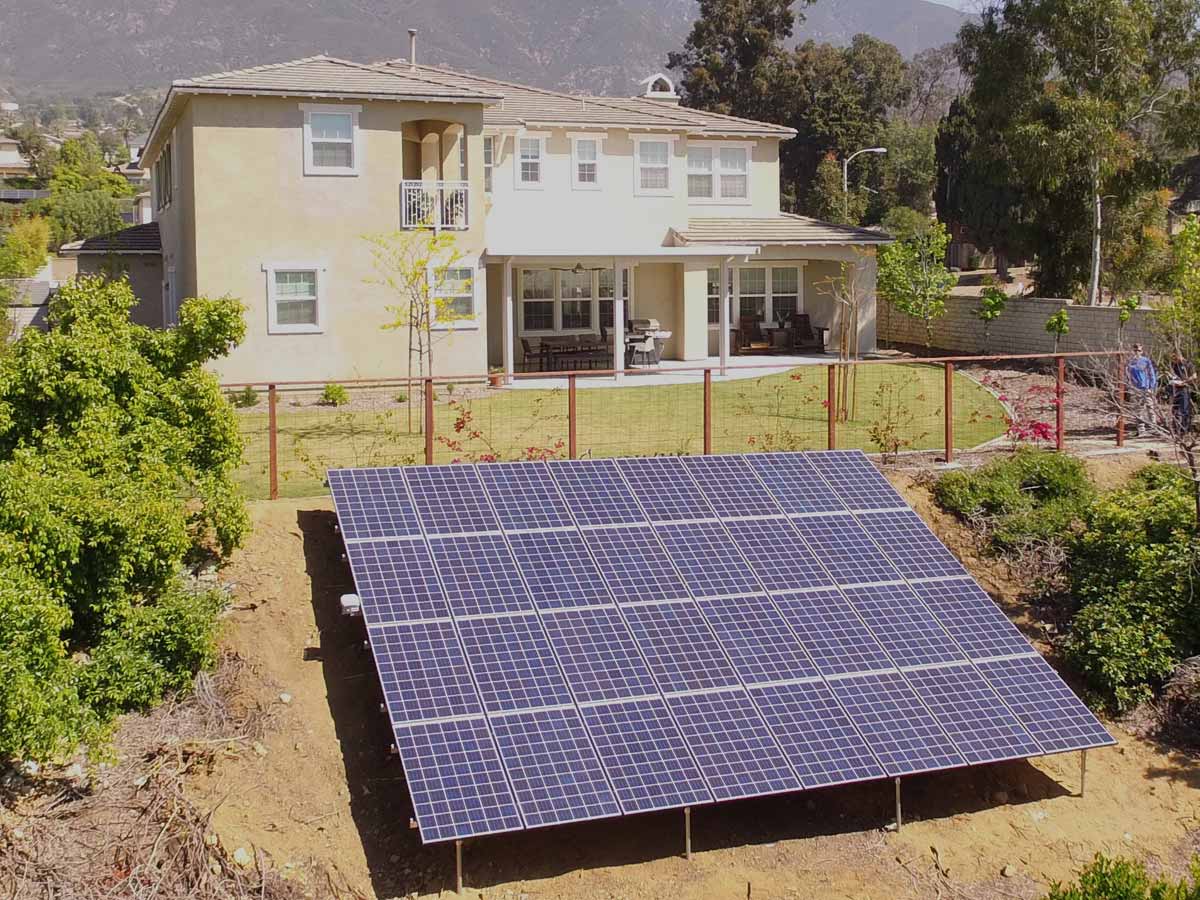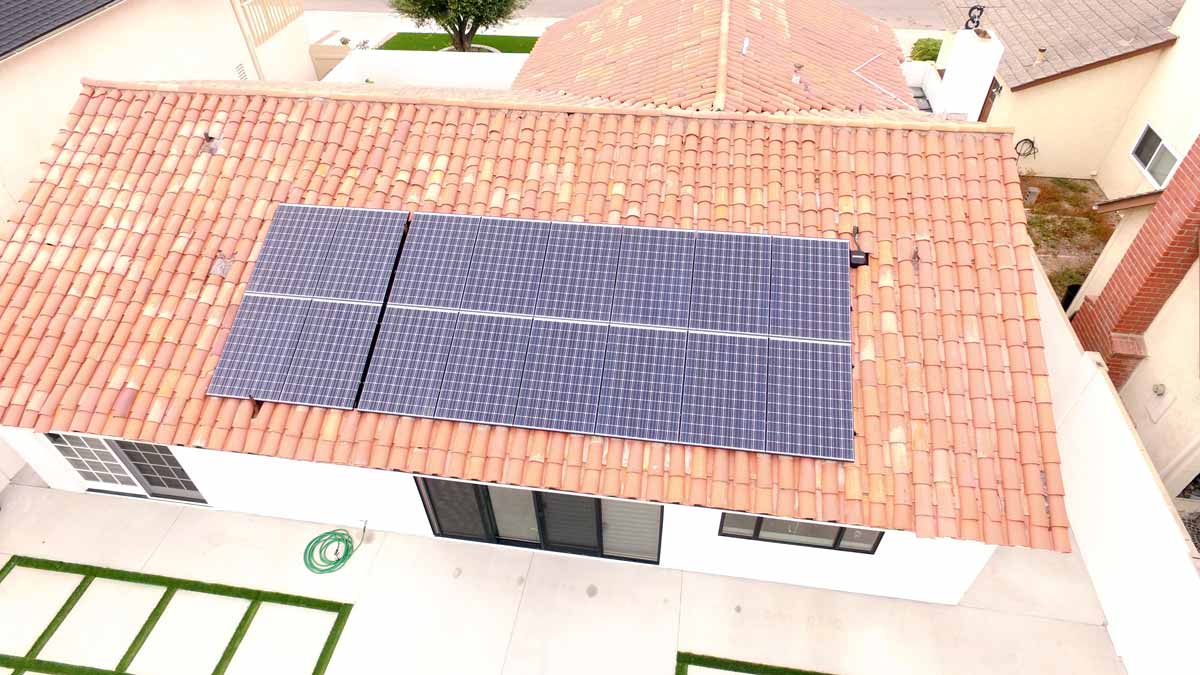Residential Solar Panel Financing In Lake Forest, CA
Finance you solar panel installation project
As homeowners across the country have begun to understand the financial and environmental benefits of solar panels, interest in solar panel installations has grown rapidly. However, although the cost of solar panels has dropped noticeably over the past decade, the average residential solar panel installation in California still costs anywhere from $15,000 to $30,000. Cash remains the easiest way to pay for solar panels and usually offers the best return on your investment. However, considering the somewhat prohibitive cost of a solar panel installation, the vast majority of homeowners either can’t afford to pay out of pocket or prefer to save their money for a rainy day. The good news is that, as the solar energy industry has matured, so have the available solar energy financing options. Get a Free Quote
Financing Your Solar Energy System in Orange County
According to data from Greentech Media, solar leases and power purchase agreements (PPA) comprised almost 75% of all financed solar energy systems as recently as 2014. This is because, for a long time, the only way to finance a residential solar panel installation was through third-party ownership. However, this option was never ideal for most homeowners because it meant forfeiting the federal tax credit to the company that leased out the equipment. The good news is that number has been on the steady decline ever since and that is thanks in large part to specialized solar finance companies, credit unions and other niche lenders. As more financing companies have entered the market and financing options for solar energy have diversified, solar loans have now become the preferred method for financing a solar energy system and own nearly 70% of today’s market share. To be clear, this does not mean that one option is better than the other however. In fact, solar energy financing is very much specific to the customer’s financial situation as well as his/her energy needs and interests. Through its network of vendors, Barnes Solar offers both lease and loan options and will also work with the homeowner if they would prefer to pay for the solar panel installation system using a home equity line of credit (HELOC) or other types of personal financing. Before you rush into a decision, let us take the time to educate you on the finer points of each option so that you can make an educated and informed decision.Solar Lease/PPA
In the solar industry, leases and PPAs are more commonly referred to as third-party ownership (TPO) options. This is because, in most cases, the solar system isn’t owned by the homeowner, it is owned by a third-party that is leasing the system out in order to create a long-term income stream and also take advantage of the tax credits. How it works is actually very easy to explain.
Learn moreSolar Lease/PPA
In the solar industry, leases and PPAs are more commonly referred to as third-party ownership (TPO) options. This is because, in most cases, the solar system isn’t owned by the homeowner, it is owned by a third-party that is leasing the system out in order to create a long-term income stream and also take advantage of the tax credits. How it works is actually very easy to explain.
This first thing to understand is that while leases and PPAs are very similar in structure and often used interchangeably in conversation, they both have unique aspects that are important to understand. The simplest way to describe a lease or PPA is that the customer is essentially renting their solar system. The company leasing you the solar system basically agrees to sell you power at a reduced rate that is cheaper than the cost of power from the utility provider. This makes sense for the leasing company because they are able to monetize the tax credit and depreciation of the asset and pass some of those savings on to the consumer.
It makes sense for the homeowner because not only are they now buying their power for cheaper than they were buying it from the utility, but because the leasing company still owns the system, they are responsible for maintaining the system and its production. This means the homeowner doesn’t need to worry if a panel breaks or an inverter dies and they won’t need to come out of pocket to fix the system.
What exactly is the difference between a lease and a PPA? The difference sounds complicated but is actually relatively simple in practice. With a lease, the homeowner agrees to rent the system and pay a fixed monthly payment based on the production of the system. In a power purchase agreement, the homeowner is agreeing to purchase the power that the system is producing at a pre-arranged price.
Both options have usually have a variety of different term lengths, both usually offer options to purchase the system for a pre-negotiated price and most importantly, both options may come with annual rate escalators to account not only for inflation but also for the rising cost of utility power.
That escalator and the lack of tax benefits are big reasons why leases have grown unpopular in the market. Homeowners who have the tax appetite to take advantage of the residential solar tax credit, miss out on thousands of dollars of potential savings if they choose to lease the system and many homeowners who have leased a solar system often find that the steep annual escalator means that they aren’t saving as much money as they initially expected. Many homeowners have also found it difficult to sell their home with a leased solar system and become frustrated when they realize that escaping the lease before the end of the term usually comes with steep prepayment penalties.
However, this doesn’t mean that the lease doesn’t work for homeowners in specific situations. For example, retired homeowners who don’t have a larger appetite are usually better served with a lease as the leasing company will share in the benefits of the tax incentives. Also, homeowners with small electricity bills ($100 and less) may prefer a lease as it will help them start saving money on their electricity bill immediately.
Barnes Solar is in the unique position to offer a lease or PPA through its internal finance fund, Barnes Capital. By financing the projects internally, Barnes Solar is able to work with the customer to customize terms and rates that best suit the customer and their needs. If you are interested in leasing a solar system or learning more about the Barnes Solar leasing options, don’t hesitate to reach out.
Solar Loan
The solar loan has become increasingly popular in the past five years as companies and homeowners alike have realized the benefits provided when a homeowner owns his or her solar system. There are a number of different types of solar loans, but all of them generally function in the same manner. In fact, most solar loans aren’t very different from a car loan or a home loan. However, solar is a different asset class, so expecting the same rates and terms as you might see on a home loan means you will likely end up disappointed.
Learn moreSolar Loan
The solar lean has become increasingly popular in the past five years as companies and homeowners alike have realized the benefits provided when a homeowner owns his or her solar system. There are a number of different types of solar loans, but all of them generally function in the same manner. In fact, most solar loans aren’t very different from a car loan or a home loan. However, solar is a different asset class, so expecting the same rates and terms as you might see on a home loan means you will likely end up disappointed.
The benefits of a loan are pretty obvious but let’s spell it out anyways.
The biggest benefit is the tax credit, which homeowners are entitled to because they own their system. It is a dollar for dollar tax credit, not a tax deduction, which means that if a homeowner buys a $20,000 solar system and usually owes the government $6,000 at the end of the year, they will actually owe nothing instead. This is admittedly an oversimplified example of how the tax credit works and Barnes Solar encourages every interested homeowner to consult with a tax professional before entering into a contract, but the savings from the tax credit are very real.
The homeowner also locks themselves in to a fixed price for electricity with a solar loan, meaning that as utility rates continue to rise, homeowners will realize additional savings by avoiding the increase in electricity costs. Almost every solar loan provider doesn’t penalize the homeowner if they decide to pay off the loan early, which means homeowners saving a lot of money can sink those savings back into the loan and avoid paying extra years’ worth of interest. At Barnes Solar, our customers see an average return on investment of between 5-7 years depending on usage history, system size and cost of the system.
In theory, a loan is also easier to deal with than a lease in the event of a home sale. Not only does a free electricity plant on the roof increase the value of the home, but even if the home buyer does not want to inherit the loan, the previous homeowner can always pay off the remaining balance without penalty and add that cost into the increased value of the home. Although there is little empirical data to back this up, most new home buyers are much more likely to inherit a loan knowing they will eventually own the system outright.
Just like with a lease or PPA, most solar loans do not require the homeowner to put any money down and that is because, in many cases, homeowners can start realize savings on their electricity bill from Day 1. The terms of these loans can range from 5 years to 20 years depending on the financing company and the current marketplace offers interest rates that range from 2.99-8.99 percent depending on credit profile and loan term length.
The structure of these loans can differ greatly and so it is important for homeowners to understand how the loans are structured. For example, some solar loans have a 12-18-month interest-only period after which the loan will reamortize and the customer will either be required or asked to pay back the amount of the federal tax credit. Other loans are structured as combo loans or “same as cash” loans. These loans all the homeowner to take an interest-free loan for the amount of the tax credit and then give the homeowner another loan for the remaining 70% of the cost. These loans can be especially appealing to fiscally responsible homeowners but beware of the fine print because if a homeowner fails to repay the tax credit at the designate time, they can be penalized with a high APR.
We work with a litany of different lending partners that offer unique benefits. Some lending partners are local credit unions, which usually offer very agreeable rates and fees but may also ask for additional underwriting paperwork. Other lending partners specialize in solar loans and can give a customer immediate approval but will often charge more in rates and fees. We understand that each homeowner is different and that there isn’t just one financing options that fits all, so if you have any questions or interest in Barnes Solar’s financing options but let us know and we can work with you to find something that fits your needs.


